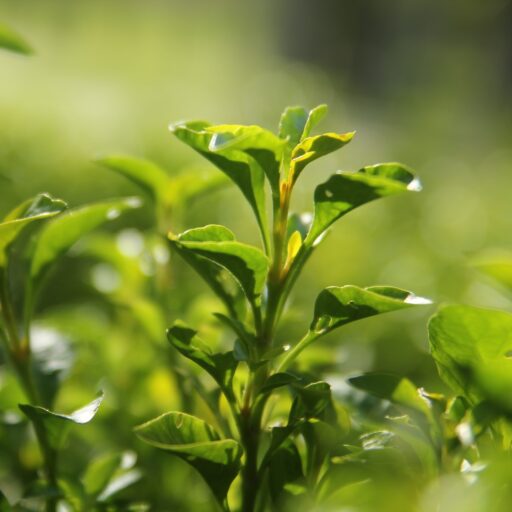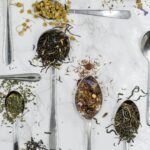Support our educational content for free when you purchase through links on our site. Learn more
What Is the Only State in the US That Grows Tea? 🍵 (2025)
Did you know that while tea is the world’s second most consumed beverage after water, only one state in the entire US grows tea commercially? If you guessed California or maybe Oregon, you’d be surprised! The secret tea haven is actually South Carolina, home to the historic Charleston Tea Garden—the largest and oldest tea plantation in America. But what makes this coastal state the perfect spot for tea cultivation? And how does American-grown tea stack up against global giants like China and India?
In this article, we’ll spill the tea on everything you need to know about US tea growing—from the fascinating history and unique climate of South Carolina to tips on growing your own tea at home. Plus, we’ll introduce you to top American tea brands and share insider secrets from the tea growers at Growing Teas™. Ready to discover the only US state where tea truly thrives? Let’s dive in!
Key Takeaways
- South Carolina is the only US state with large-scale commercial tea farming, thanks to its ideal climate and soil conditions.
- The Charleston Tea Garden is America’s oldest and largest tea plantation, offering tours and producing uniquely American teas.
- American-grown tea tends to have a light, smooth, and mellow flavor distinct from traditional Asian teas.
- Growing tea at home is possible with the right seeds, soil, and care—perfect for tea lovers wanting to cultivate their own fresh leaves.
- Sustainability and organic practices are gaining traction in US tea farming, aligning with global trends toward eco-friendly agriculture.
Ready to brew your own American-grown tea? Check out our curated selection of tea plant seeds and explore top brands like Charleston Tea Garden and Bigelow Tea. Your perfect cup is just a leaf away! 🍃
Table of Contents
- Quick Tips and Facts About US Tea Growing 🍵
- The Untold Story: How Tea Found Its Way to America’s Soil 🌱
- What Is the Only State in the US That Grows Tea? 🌿
- Why South Carolina? The Perfect Climate and Soil for Tea Cultivation ☀️🌧️
- Meet Charleston Tea Garden: America’s Oldest and Largest Tea Plantation 🇺🇸🍃
- [How American-Grown Tea Compares to Global Tea Giants 🌍 vs. 🇺🇸]
- [From Leaf to Cup: The Art and Science of Tea Production in South Carolina 🍂➡️☕]
- [Sustainability and Organic Practices in US Tea Farming 🌿♻️]
- [Visiting Charleston Tea Garden: What to Expect and How to Plan Your Trip 🚗🎟️]
- [Top 5 American Tea Brands You Should Know About 🇺🇸🍵]
- [Growing Tea at Home: Tips from the Experts 🌱🏡]
- [Common Questions About US Tea Cultivation Answered ❓✅]
- [Conclusion: Why South Carolina’s Tea Story Matters to You 🌟]
- [Recommended Links for Tea Enthusiasts and Growers 📚]
- [FAQ: Your Burning Questions About US Tea Growing 🔥❓]
- [Reference Links: Trusted Sources and Further Reading 📖]
Quick Tips and Facts About US Tea Growing 🍵
To get started with Cultivate Your Own Tea, check out our article on Discover 10 Amazing Tea Plant Seeds for Your Garden! 🌱. Here are some key points to consider:
What You Need to Know
- Tea can be grown in the US, with South Carolina being the only state with a large-scale tea farm.
- The Charleston Tea Garden is a popular destination for tea enthusiasts, offering tours and a gift shop with unique tea gifts.
- To grow your own tea, you’ll need to choose the right tea plant seeds, prepare the soil, and provide the necessary care and maintenance.
The Untold Story: How Tea Found Its Way to America’s Soil 🌱
The history of tea in the US is fascinating, with attempts at cultivation dating back to the 18th century. According to Wikipedia, the first attempt at tea cultivation was made in Colonial Georgia in 1744. Since then, there have been numerous attempts at growing tea in the US, with varying degrees of success.
What Is the Only State in the US That Grows Tea? 🌿
As mentioned earlier, South Carolina is the only state with a large-scale tea farm, specifically the Charleston Tea Garden. This garden is a partnership between the Bigelow Tea Company and the Hall family, and it produces a range of teas, including American Classic Tea and Charleston Tea Garden Teas. You can learn more about the Charleston Tea Garden on their official website.
Why South Carolina? The Perfect Climate and Soil for Tea Cultivation ☀️🌧️
South Carolina’s climate and soil make it an ideal location for tea cultivation. The state’s warm and humid climate, combined with its well-drained soil, provide the perfect conditions for tea plants to thrive. According to CNN, the tea plants at the Charleston Tea Garden are harvested every 15-18 days from May to October.
Meet Charleston Tea Garden: America’s Oldest and Largest Tea Plantation 🇺🇸🍃
The Charleston Tea Garden is a must-visit destination for tea enthusiasts. The garden offers tours of the tea factory and trolley tours of the fields, as well as a gift shop with unique tea gifts. You can learn more about the garden and plan your visit on their official website.
How American-Grown Tea Compares to Global Tea Giants 🌍 vs. 🇺🇸
American-grown tea has its own unique characteristics and benefits. According to Wikipedia, American-grown tea is often described as light and smooth, with a mellow flavor. If you’re interested in trying American-grown tea, you can check out Amazon for a range of options.
From Leaf to Cup: The Art and Science of Tea Production in South Carolina 🍂➡️☕
The process of tea production in South Carolina involves several steps, from harvesting to processing. According to CNN, the tea plants at the Charleston Tea Garden are harvested every 15-18 days from May to October. You can learn more about the process of tea production on our website, including articles on Green Tea Cultivation and Herbal Tea Planting.
Sustainability and Organic Practices in US Tea Farming 🌿♻️
Sustainability and organic practices are becoming increasingly important in US tea farming. According to Wikipedia, many US tea farms are adopting organic and sustainable practices, such as using natural fertilizers and integrated pest management. You can learn more about sustainable tea farming practices on our website, including articles on Health Benefits of Tea and DIY Tea Blending.
Visiting Charleston Tea Garden: What to Expect and How to Plan Your Trip 🚗🎟️
If you’re planning to visit the Charleston Tea Garden, here are a few things to expect:
- Tours of the tea factory and trolley tours of the fields
- A gift shop with unique tea gifts
- Beautiful scenery and relaxing atmosphere
You can plan your visit on the garden’s official website.
Top 5 American Tea Brands You Should Know About 🇺🇸🍵
Here are the top 5 American tea brands you should know about:
- Bigelow Tea Company: Known for their American Classic Tea and Charleston Tea Garden Teas.
- Charleston Tea Garden: Offers a range of teas, including black tea, green tea, and herbal tea.
- The Great Mississippi Tea Company: Produces a range of teas, including black tea and green tea.
- Table Rock Tea Company: Offers a range of teas, including black tea, green tea, and herbal tea.
- Fleur De Lis Tea Company: Produces a range of teas, including black tea and herbal tea.
You can check out these brands on Amazon or on their official websites.
Growing Tea at Home: Tips from the Experts 🌱🏡
Growing tea at home can be a fun and rewarding experience. Here are a few tips to get you started:
- Choose the right tea plant seeds: Look for seeds that are specifically designed for growing tea at home.
- Prepare the soil: Tea plants prefer well-drained soil with a slightly acidic pH.
- Provide the right amount of water: Tea plants need consistent moisture, but make sure not to overwater.
You can learn more about growing tea at home on our website, including articles on Green Tea Cultivation and Herbal Tea Planting.
Common Questions About US Tea Cultivation Answered ❓✅
Here are some common questions about US tea cultivation answered:
- What is the best type of tea to grow in the US?: The best type of tea to grow in the US depends on your climate and soil type. However, black tea and green tea are popular options.
- How much water does a tea plant need?: Tea plants need consistent moisture, but make sure not to overwater. Aim for about 1-2 inches of water per week.
- Can I grow tea indoors?: Yes, you can grow tea indoors. However, make sure to provide the right amount of light and water.
You can learn more about US tea cultivation on our website, including articles on History of Tea and Health Benefits of Tea.
Conclusion

So, what have we learned on this flavorful journey? South Carolina stands tall as the only US state with large-scale commercial tea cultivation, thanks to the pioneering spirit of the Charleston Tea Garden. This gem on Wadmalaw Island not only produces uniquely American-grown tea but also invites tea lovers to experience the full cycle from leaf to cup through engaging tours and a charming gift shop.
From historical attempts dating back to the 1700s to modern mechanized harvesting, the story of tea in the US is rich and evolving. While other states like Alabama, Hawaii, and Oregon have smaller or experimental farms, South Carolina’s climate, soil, and dedication have made it the heart of American tea production.
If you’re inspired to grow your own tea, remember that patience and care are key. Tea plants thrive in well-drained, slightly acidic soil with consistent moisture and a warm, humid climate. Whether you have a sprawling backyard or just a sunny windowsill, cultivating your own tea is an achievable and rewarding adventure.
We hope this deep dive has brewed up your curiosity and confidence to explore American-grown tea, whether by sipping it or growing it yourself. Ready to take the plunge? Your perfect cup of homegrown tea awaits! 🍵🌿
Recommended Links
Ready to explore or shop for some of the best American-grown teas and tea-growing supplies? Here are some top picks and resources:
-
Charleston Tea Garden Teas:
Amazon Search: Charleston Tea Garden | Charleston Tea Garden Official Website -
Bigelow Tea Company Products:
Amazon Search: Bigelow Tea | Bigelow Tea Official Website -
Tea Plant Seeds for Home Growing:
Amazon Search: Tea Plant Seeds | Growing Teas™ Tea Plant Seeds -
Books on Tea Cultivation and History:
FAQ

What are the ideal climate conditions for growing tea in the US?
Tea plants (Camellia sinensis) flourish in warm, humid climates with ample rainfall and well-drained, slightly acidic soil (pH 5.5–6.5). South Carolina’s Lowcountry region offers these conditions perfectly, with mild winters and long, humid summers. Tea requires protection from frost, so regions with harsh winters are less suitable unless you grow indoors or in greenhouses. Consistent moisture without waterlogging is crucial to prevent root rot.
Read more about “Discover 10 Amazing Tea Plant Seeds for Your Garden! 🌱”
How do I start a backyard tea garden in a region with a similar climate to the tea-growing state?
Step-by-step to backyard tea success:
- Choose your tea plants: Opt for Camellia sinensis var. sinensis or var. assamica seeds or seedlings from reputable sources like Growing Teas™.
- Prepare the soil: Ensure it’s well-drained, rich in organic matter, and slightly acidic. Amend with peat moss or pine needles if necessary.
- Plant location: Select a spot with partial shade to protect young plants from scorching sun.
- Watering: Keep soil consistently moist but not soggy; mulch helps retain moisture.
- Pruning: Regularly prune to encourage bushy growth and ease harvesting.
- Patience: Tea plants take 3–5 years before you can harvest leaves for tea.
What types of tea plants are commonly grown in the US and how do I care for them?
The two main varieties are:
- Camellia sinensis var. sinensis: Smaller leaves, cold-hardy, used for green and white teas.
- Camellia sinensis var. assamica: Larger leaves, prefers warmer climates, used for black teas.
Care involves:
- Sunlight: Partial shade to full sun depending on plant age.
- Water: Regular watering, avoiding waterlogging.
- Soil: Acidic, well-drained.
- Fertilization: Organic compost or balanced fertilizer during growing season.
- Pest control: Monitor for aphids and mites; use organic methods when possible.
Can I grow tea plants in containers if I don’t have a large yard or live in a different state?
✅ Absolutely! Container growing is a fantastic option for limited space or colder climates. Use a large pot (at least 12-16 inches deep) with good drainage. Use acidic potting mix rich in organic matter. Place containers in a sunny spot, ideally with some afternoon shade. During winter, bring containers indoors or into a greenhouse to protect from frost. Container tea plants require more frequent watering and feeding but can thrive with proper care.
Reference Links
- Charleston Tea Garden Official Website: https://charlestonteagarden.com/
- Bigelow Tea Company: https://www.bigelowtea.com/
- CNN Travel Article on Charleston Tea Plantation: https://www.cnn.com/travel/article/charleston-tea-plantation-south-carolina/index.html
- Wikipedia: Tea production in the United States: https://en.wikipedia.org/wiki/Tea_production_in_the_United_States
- Growing Teas™ Categories:



